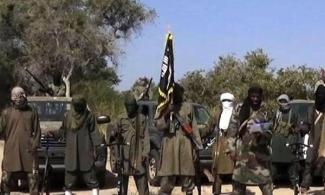
SaharaReporters had reported that the Nigerian government announced its decision to redesign the N200, N500, and N1000 notes, which will begin its issuing in December and will cease to be legal tender on January 31, 2023.
Following the Nigerian government's decision to redesign and reissue higher denominations of the currency, the Shura Council of the Islamic State of West African Province (ISWAP) has banned the receiving of Naira from farmers and fishermen in Lake Chad's Tumbus region.
SaharaReporters had reported that the Nigerian government announced its decision to redesign the N200, N500, and N1000 notes, which will begin its issuing in December and will cease to be legal tender on January 31, 2023.
It was gathered that the government's decision had confused the ISWAP population in Lake Chad's Tumbus region and driven them away from bank branches, where they would find it extremely difficult to convert their money into new currency notes.
Hence, an Intelligence source told Zagazola Makama, a Counter Insurgency Expert and Security Analyst in the Lake Chad region, that the insurgents were now receiving the West African CFA Francs which they intended to replace the Nigerian Naira as the currency of trade in the area.
The sources said that the terrorists had also banned all Nigerian fishermen, herdsmen and farmers from sneaking into Lake Chad through Marte, Abadam, and Gamboru Ngala to prevent the Naira from reaching the camps of the terrorists in the Lake Chad.
Ibn Umar and Malam Ba’ana, the ISWAP Militant Commanders in charge of taxes and levies, who imposed the ban, said the people were only allowed to come through safe routes established by the terror group through Bulgaram, Cikka, Guma, Maltam, Doron Liman and Ramin Dorina, villages in Cameroon Republic.
In exchange, ISWAP collects 1,500 West African CFA Francs, monthly taxes from the people who appear very willing to pay.
They have also secured trade routes for merchants, to enable them access foodstuffs, weapons, fuel and other logistics.